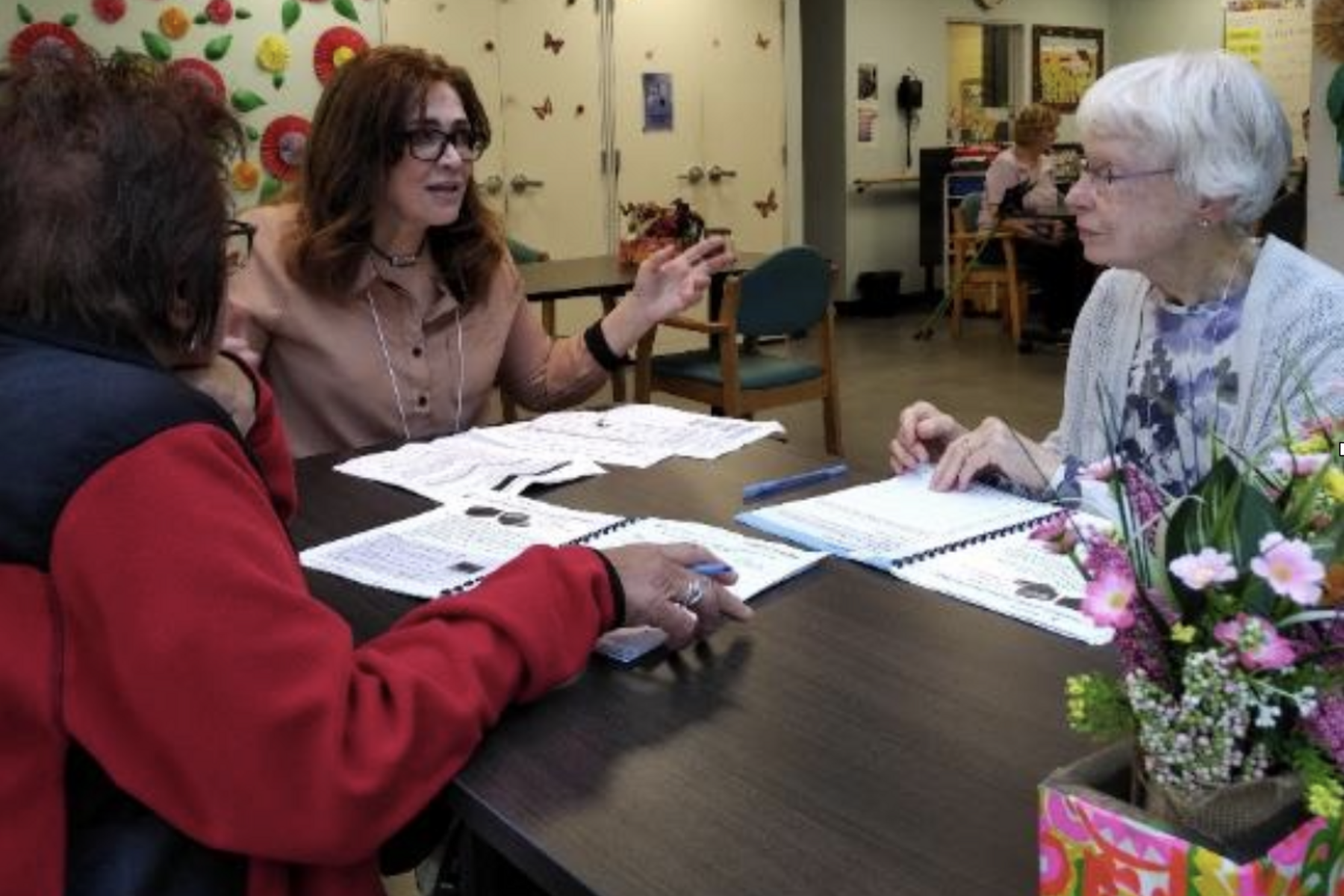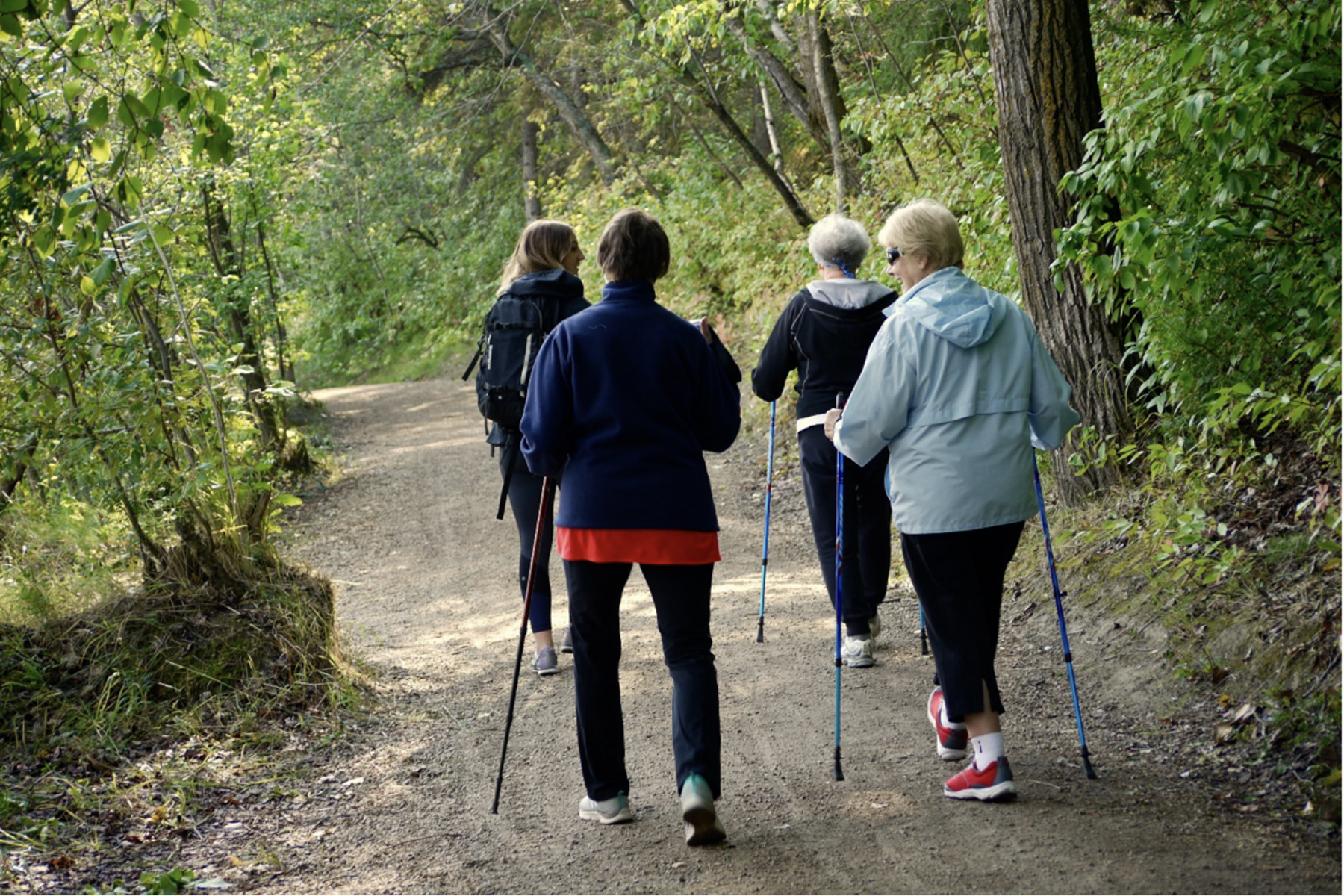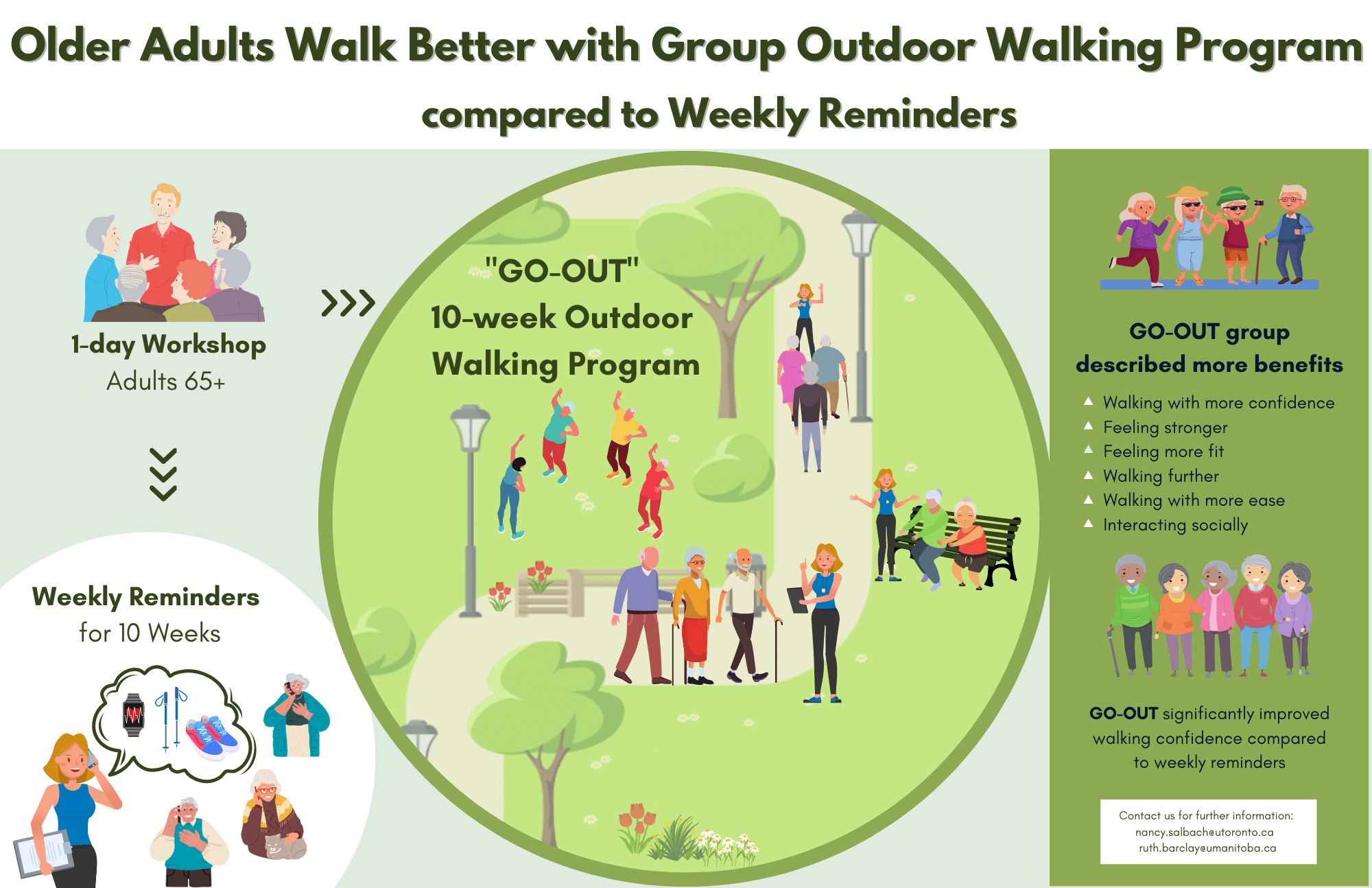Main Second Level Navigation
Breadcrumbs
- Home
- Research
- Programs of Research
- Knowledge to Action Research
- Getting Older Adults OUTdoors (GO-OUT): A 4-Site Randomized Trial
Getting Older Adults OUTdoors (GO-OUT): A 4-Site Randomized Trial
Full Project Title
A theory-based, task-oriented, outdoor walking program for older adults with difficulty walking outdoors: The Getting Older Adults OUTdoors (GO-OUT) 4-site randomized trial
Trial Registration: http://www.clinicaltrials.gov. Unique identifier: NCT02339467
Background
An estimated 42% of older adults describe limited participation in outdoor walking defined as walking outside fewer than 3 days a week. Infrequent performance of outdoor walking is a marker of frailty and can increase the risk of mobility and self-care decline, social isolation, and reduced health-related quality of life.
Objectives
In this study we are evaluating the short-term and long-term effects of a 1-day educational workshop followed by a 10-week program of group, task-oriented outdoor walking training (the GO-OUT program) compared with the workshop and 10 weekly reminders, on increasing outdoor walking activity in older adults with difficulty walking outdoors. A secondary objective is to evaluate the effect of GO-OUT on self-reported outdoor walking, physical activity, lifespace mobility, participation, emotional health, health-related quality of life, balance, leg strength, walking self-efficacy, walking speed, walking endurance, heart rate and blood pressure.
Methods
A randomized controlled trial with an embedded qualitative component was conducted in four urban Canadian communities. We stratified 190 individuals by site and participant type (i.e., individual vs spousal/friend pair), and randomized them to either the GO-OUT or weekly reminders (WR) program. The GO-OUT program involves a 1-day workshop, where participants complete 8 interactive stations to build knowledge and skills to walk outside, followed by a 10-week group outdoor mobility program (two one-hour sessions/week) led by a physiotherapist or kinesiologist in parks. The WR program consists of the same workshop and 10 weekly telephone reminders to facilitate outdoor walking. The primary outcome measure is outdoor walking time in minutes/week derived from accelerometry and GPS data. Secondary outcomes include self-reported outdoor walking, physical activity, lifespace mobility, participation, emotional health, health-related quality of life, balance, leg strength, walking self-efficacy, walking speed, walking endurance, heart rate and blood pressure. Evaluations occurred at 0, 3, 5.5, and 12 months. Participants in each intervention group were interviewed at 6 and 12 months to explore their experiences in the study. Data analysis to describe the process of the study and address primary and secondary objectives is ongoing.


Team Members
Principal Investigators
- Nancy Salbach, University of Toronto (Nominated PI)
- Ruth Barclay, University of Manitoba
- Phil Chilibeck, University of Saskatchewan (Knowledge User PI)
Co-investigators
- Dina Brooks, McMaster University
- Theresa Grant, Ottawa University
- Allyson Jones, University of Alberta
- Lisa Lix, University of Manitoba
- Nancy Mayo, McGill University
- Jacquie Ripat, University of Manitoba
- Kristel van Ineveld, University of Manitoba
- Sandra Webber, University of Manitoba
Partners
Canadian Society for Exercise Physiology
Sponsors / Funding
- Research Manitoba
- Canadian Institutes of Health Research
- Heart & Stroke Foundation of Canada
- University of Toronto
Knowledge Translation
- Salbach NM, Barclay R, Webber SC, Jones CA, Mayo N, Lix LM, Ripat J, Grant T, van Ineveld C, Chilibeck PD. A theory-based, task-oriented, outdoor walking programme for older adults with difficulty walking outdoors: protocol for the Getting Older Adults Outdoors (GO-OUT) randomised controlled trial. BMJ Open 2019;9:e029393. doi: 10.1136/bmjopen-2019-029393
- Barclay R, Webber S, Ripat J, Grant T, Jones CA, Lix LM, Mayo N, van Ineveld C, Salbach NM. Safety and feasibility of an interactive workshop and facilitated outdoor walking group compared to a workshop alone in increasing outdoor walking activity among older adults: a pilot randomized controlled trial. Pilot and Feasibility Studies 2018. https://doi.org/10.1186/s40814-018-0367-4
- Webber SC, Hahn F*, Lix LM, Tittlemier BJ*, Salbach NM, Barclay R. Accuracy of thresholds based on cadence and lifestyle counts per minute to detect outdoor walking in older adults with mobility limitations. Journal of Aging and Physical Activity 2020;28(5):782-786. https://doi.org/10.1123/japa.2019-0235.
- Kokorelias K*, Ripat, Jones CA, Mayo NE, Salbach NM, Barclay R. Moving through COVID-19: perspectives of older adults in the Getting Older Adults Outdoors study. Journal of Aging and Physical Activity. https://doi.org/10.1123/japa.2021-0098.
- Bhatia D*, Salbach NM, Akinrolie O*, Alsbury-Nealy K*, Barbosa dos Santos R*, Eftekhar P*, Loewen H, Nekolaichuk E, Scheller C*, Schorr R*, Scodras S*, Barclay R. Outdoor community ambulation interventions to improve physical and mental health in older adults: a systematic review and meta-analysis. Journal of Aging and Physical Activity. 2022.
- Liu Y*, Salbach NM, Webber SC, Barclay R. Individual and environmental variables related to outdoor walking among older adults: A secondary analysis of cross-sectional data from the Getting Older Adults OUTdoors (GO-OUT) study. PLoS One, 2024. https://doi.org/10.1371/journal.pone.0296216
- Barclay R, Webber SC, Hahn F*, Jones CA, Mayo NE, Sivakumaran S, Liu Y*, Chilibeck PD, Salbach NM. A park-based group mobility program for older adults with difficulty walking outdoors: A quantitative process evaluation of the Getting Older Adults Outdoors (GO-OUT) randomized controlled trial. BMC Geriatrics. 28:833, 2023. https://doi.org/10.1186/s12877-023-04524-7
- Veley A*, Degen M*, Rimmer L*, Collins L*, Dorocicz I*, Smith J*, Barclay R, Scodras S*, Alsbury-Nealy K*, Salbach NM. Do measures of physical capacity and walking self-efficacy relate to frailty in older adults with difficulty walking outdoors? A secondary data analysis. Disability and Rehabilitation. 2023. https://doi.org/10.1080/09638288.2023.2258336
*Trainees
